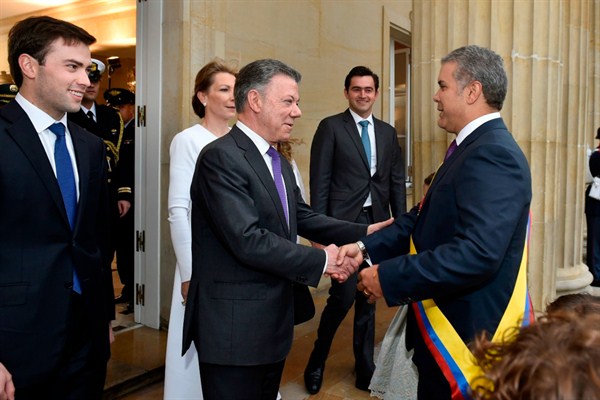A day before Nicolas Maduro accused Juan Manuel Santos and the “Bogota oligarchy” of orchestrating an audacious attempt on his life with explosive-equipped drones earlier this month, Colombia’s outgoing president reminded his Venezuelan counterpart of the reality that divides their two nations. “Eight years ago we agreed with Chavez and Maduro that history would judge which economic system was better,” Santos wrote on Twitter. Inflation in Colombia, he noted, was 3.12 percent. In Venezuela, it was a stunning 1 million percent. “The verdict is clear.”
Reining in inflation is one of a number of economic achievements from Santos’ eight years in office. He can also boast of reducing unemployment and the size of the informal market, overseeing the steady growth of Colombia’s GDP, and lifting 5.4 million Colombians out of poverty—all while managing a crisis over the global price of oil that caused neighboring Venezuela to implode.
Unfortunately or not for Santos, these achievements have been overshadowed by the more impressive feat of ending half a century of conflict with the world’s longest-running guerrilla army, the Revolutionary Armed Forces of Colombia, or FARC. That peace deal remains unpopular in Colombia, though, and could be revised under the country’s new president, the fresh-faced technocrat Ivan Duque, who was sworn in Aug. 7.

